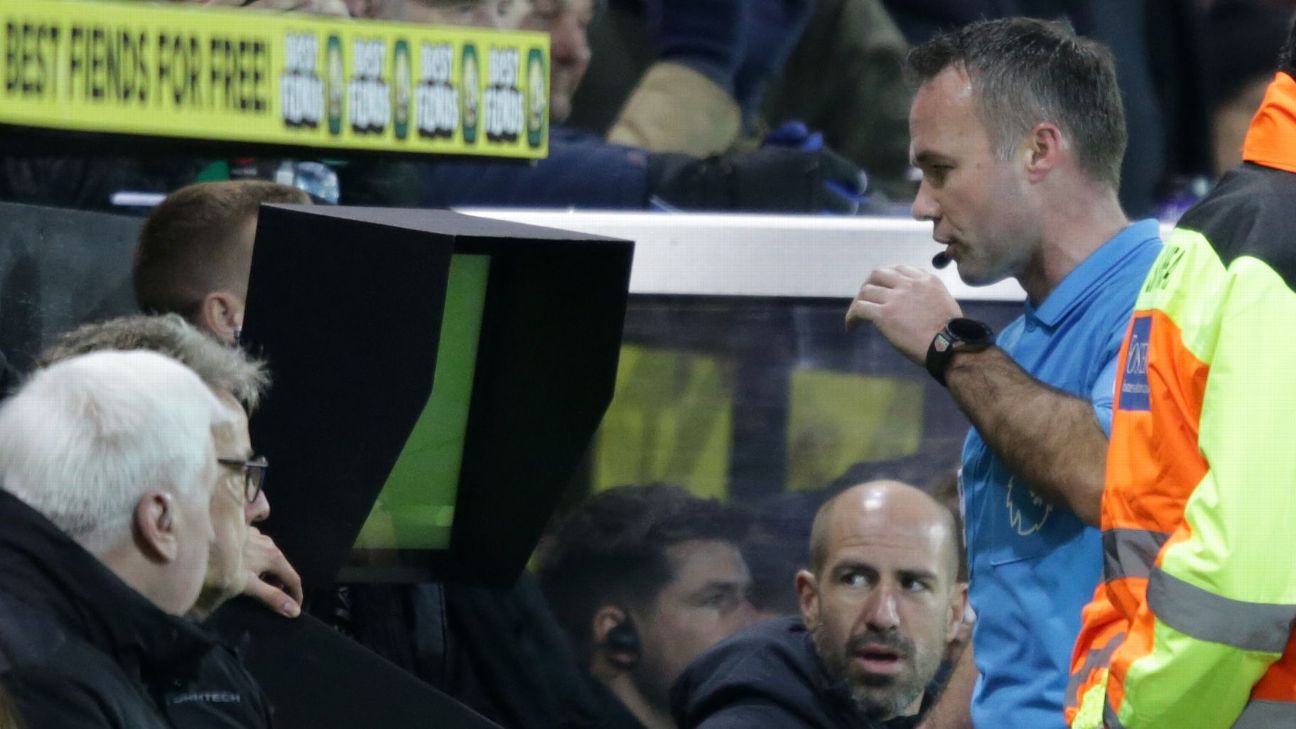Products You May Like

The International Football Association Board (IFAB) has published its changes to the Laws of the Game for next season, including a small but very significant tweak to the VAR protocol.
With this came a statement from the IFAB that appears to be directed toward the Premier League.
What has the IFAB said?
In its circular to explain law changes, the IFAB made the following statement about VAR protocol:
“The members [of the IFAB Board] acknowledged that there had been some inconsistency amongst high-profile competition organisers in the application of the VAR protocol as defined in the Laws of the Game. However, recent communication from these competition organisers signalled a positive shift towards the universal application of the protocol from next season.”
Has the IFAB called out the Premier League?
While the IFAB will never be directly critical of an individual league, it can be presumed to be a thinly veiled reference to the way VAR has been used in the Premier League this season.
What has the Premier League got so wrong?
The Premier League decided not to use on-field reviews, better known as pitchside monitors, in its first season with VAR, leaving the decision-making on subjective incidents to the VAR. It is the only high-profile competition to not use on-field reviews, something the Bundesliga trialled in 2017-18 and abandoned after one season.
However, this policy increasingly angered players, managers and supporters who lost faith in the system very quickly.
This was relaxed in January when on-field reviews began to be used on red card decisions. Referee Paul Tierney was the first to use a monitor, as Norwich defender Ben Godfrey was sent off against AFC Bournemouth.
However, it was purely a confirmatory process based on the VAR’s opinion. This was never more evident than in the following month when Tottenham Hotspur‘s Giovani Lo Celso escaped a red card for a studs-first challenge on Chelsea‘s Cesar Azpilicueta. The Premier League was forced to issue an apology before the full-time whistle had even blown.
So how has VAR protocol changed?
The word “often” has been removed from the section governing on-field reviews in the VAR protocol.
It read: “For subjective decisions, e.g. intensity of a foul challenge, interference at offside, handball considerations, an ‘on-field review’ (OFR) is often appropriate.”
Why is this so important?
Including the word “often” allowed leagues to be discretionary over the use of on-field reviews. Dropping this gives a clear instruction that pitchside monitors should be used on all subjective decisions.
In the circular, the IFAB states “where a reviewable incident is subjective, the expectation is that the referee will undertake an ‘on-field review’ (OFR), i.e. the referee will view the replay footage in the referee review area.”
The use of on-field reviews protects the referee’s authority on the pitch and allows supporters and players to place greater trust in the VAR process.
Will the Premier League now use monitors?
The IFAB said that it expects “a positive shift towards the universal application of the protocol,” but not until next season. So that indicates the Premier League will no longer try to do its own thing.
Has the Premier League broken protocol elsewhere?
Yes. Assistant referees are told to always flag on offside calls and leave the decision on when to stop play to the referee. IFAB VAR protocol, however, states the flag should be kept down and only raised at the end of the attacking move. We may see the Premier League fall into line here too.
Are any other leagues in trouble with the IFAB?
Yes. The Premier League is joined in the dock by UEFA and the Bundesliga for not using the VAR to enforce the goalkeeper’s movement off the line on a penalty kick. Even though the IFAB insisted that the VAR should be enforcing this law at the start of the season, several major competitions chose not to.
